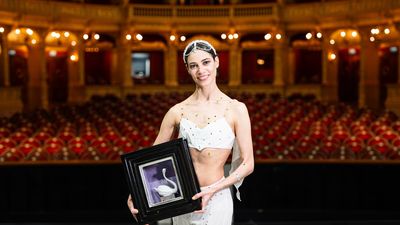
On 18 September, 2016 the most significant piece of Croatian music, the three-act opera by Ivan pl. Zajc entitled Nikola Šubić Zrinjski (Zrínyi Miklós) is presented at the Hungarian State Opera. Hungarian audiences can see this Croatian national opera in the production of the Croatian National Theatre of Osijek featuring nearly 250 guest artists.
The performance is a tribute to the common fate and friendship between the Croatian and the Hungarian nations. The opera is shown at the Budapest Opera House on the 450th anniversary of the siege of Szigetvár, an event important to both nations. The performance is part of the “Miklós Zrínyi–Szigetvár 1566 Memorial Year” under the patronage of János Áder, the president of Hungary, and Kolinda Grabar Kitarović, the president of the Republic of Croatia.
This production of the opera Nikola Šubić Zrinjski premiered in November 2012 in the production by director Nina Kleflin. The world premiere of the opera took place in Zagreb on 4 November 1876. It was well received by audiences and critics alike. Zajc's work mixes then current European operatic conventions and styles with his own knowledge of Croat melody, which results in a real Italian style romantic opera. It is dominated by harmonious melodies, and the musical expressions of the two opposing cultures: the Christian world and the Ottoman Empire. Its enduring fame is due in large part to its climactic chorus, "U boj, u boj!" ("To battle, to battle!"). This excerpt was actually composed ten years prior to the rest of the opera, and was presented as a choral work. It can often be heard at celebrations and gala performances.
The three-act opera production was described as a significant artistic piece by Dr. Gordan Grlić Radman, Ambassador of the Republic of Croatia. He also named Miklós Zrínyi (Nikola Zrinjski) a symbol of loyalty, patriotism and bravery.
The subject-matter of the piece based on these notions, just like many other national operas of the 19th century. Similarly to the national operas Bánk bán or Hunyadi László by Hungarian composer Ferenc Erkel, the work by Ivan Zajc is also based on a historic event from centuries before, making it a metaphor of the main struggles of his age: the desire to get independent from a foreign power, making the opera revolve around the national identity and patriotism.
Dr. János Hóvári, chairman of the committee organising the memorial year highlighted that not only did the Croatians and Hungarians live in the same country once, but the two nations also shared a common fate although this relationship was ruined by the independent movements of the 19th centuries. “In 1866, on the 300th anniversary of the siege of Szigetvár, the whole of Hungary commemorated Miklós Zrínyi and his brothers-in-arm. At that time, a political debate arose among the Croatians whether the general was ‘a good Croatian’, or he sacrificed young Croatian soldiers unnecessarily to protect the Hungarians. In a way, Ivan Zajc expressed his opinion on this matter by writing his opera and depicting Zrínyi as both a Croatian and Hungarian hero” – explained János Hóvári about the origins of the piece.
The composer Ivan Zajc (1832–1914), who is also referred to as the Croatian Verdi, studied in Milan, then he continued his career in Vienna. After returning to his homeland he became the most significant figure of Croatian music. Through his artistic and institutional reform efforts, he is credited with its revitalization and refinement, paving the way for new and significant Croatian musical achievements in the 20th century. From almost a thousand pieces Nikola Šubić Zrinjski is considered his absolute masterpiece, although it is not very well-known outside Croatia.
In connection with the guest performance, Szilveszter Ókovács, general director of the Hungarian State Opera emphasised: “Apart from the figure and the story of Zrínyi being significant to both nations, it is also of immense importance for Croatia to make their national composer known internationally, and to elevate him to the status of Verdi, just like we, Hungarians do it with Erkel. The performance on 18th September is an excellent opportunity to achieve this.”
The title role is sung by Dalibor Hanzalek, whose repertoire ranges from baroque classics to contemporary pieces. The role of Suleiman is originated by Berislav Puškarić, who is also well-known in European opera houses. The conductor of the opera, Mladen Tutavac, who has been working with the Croatian National Theatre for over two decades. Beside Croatian pieces he frequently conducts 19th century operas and oratorios, but he has a wide concert repertoire as well.

Dr. János Hóvári, Dr. Gordan Grlić Radman, Szilveszter Ókovács (photo by Szilvia Csibi)


